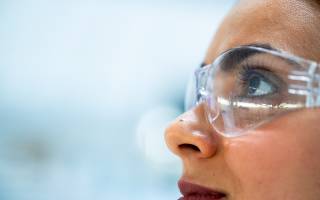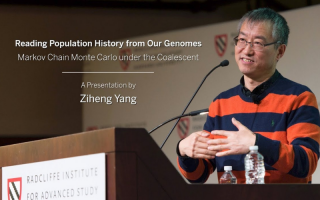History
The R.A. Fisher Centre for Computational Biology was established in 2010 as an interdisciplinary centre of excellence for statistical and computational analysis of the fast-growing data in genetics and biology. Professor Ziheng Yang FRS was the first director. The Centre works at the interface between mathematical statistics, computer science, and genetics and biology. It is based at the Department of Genetics, Evolution and Environment within the BioSciences Division, and include members from the Department of Computer Science at UCL as well.
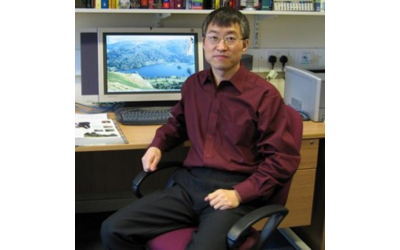
In 2020, a collective decision was taken at GEE to rename the centre the UCL Centre for Computational Biology. The reasons for this change are set out at the page on "Fisher, eugenics and race".
UCL has a long and illustrious history in interdisciplinary research and this has in particular been the case with statistics and evolutionary biology.
The Origin of Modern Statistical Science at UCL
Sir Francis Galton was Darwin's cousin, and the founder of the modern study of human genetics and - less creditably - of eugenics, whose legacy helped establish the Galton Laboratory. Among his many achievements, Galton explored Africa, invented fingerprinting and the weather map, and studied the Gaussian distribution and correlation in human characteristics between parents and children. He coined the term “regression”, although he meant regression to mediocrity in heredity stature.
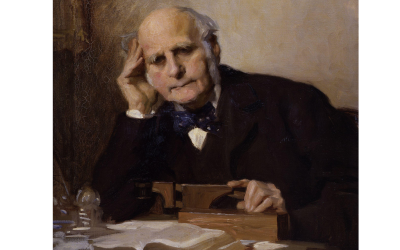
Karl Pearson was the first Galton Chair. He studied the measurements collected by Galton and WFR Weldon, and developed Pearson’s correlation coefficient, and the chi square test. Both his statistics laboratory and the genetics/eugenics laboratory (Galton Laboratory) were world-renown. Statisticians working or visiting his laboratories include William Gosset, who published the t distribution under the pseudonym “Student”; GU Yule, known for the Yule process; and so on.
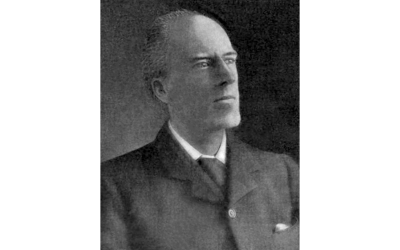
When Karl Pearson retired in 1933, his empire split into two. RA Fisher succeeded him as the Galton Chair and the head of Galton Laboratory. Pearson’s statistical laboratory became the Department of Applied Statistics, the first such department in the world, headed by his son, Egon Pearson. Jerzy Neyman was in the department on and off before heading to Berkeley, California.
Three giants in population genetics, two in UCL
Theoretical population genetics was developed in the early 1900s, reaching the great synthesis by about 1930. Almost all contributions were made by only three people: RA Fisher, JBS Haldane, and Sewall Wright. They are known as the three giants in population genetics.
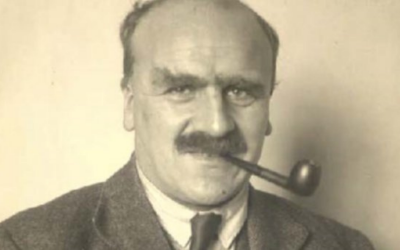
After the rediscovery of Mendel’s work in 1900, a controversy flares up between the Mendelians (Bateson, Punnett in Cambridge) and the biometricians (Galton, Pearson, and Weldon in UCL). The former emphasized the particulate nature of genes while the latter emphasized the continuous nature of phenotypes like human body height. This was eventually reconciled by RA Fisher’s 1918 paper. William Provine’s PhD thesis examined the origin of theoretical population genetics.
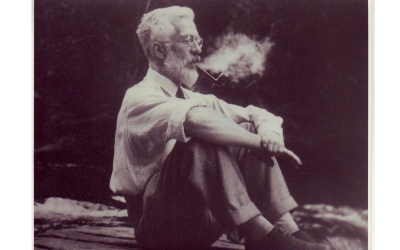
Further developments would have to wait until a few decades later, in the hands of Gustave Malécot, Motoo Kimura, Tomoko Ohta, etc. Even though published about 100 years ago, the papers of Fisher, Haldane, and Wright are critically important today in the analysis of genomic data and widely read. This is remarkable in biology, where publications tend to become obsolete in a few years.
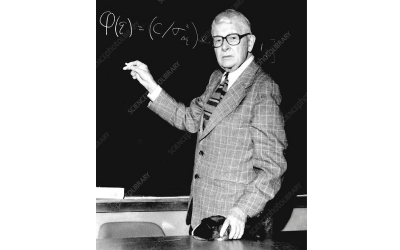
The UCL Centre for Computational Biology Today
Today, under the leadership of Professor Ziheng Yang FRS, UCL's long tradition of innovation in statistics and genetics. The UCCB is world-leading in the fast-growing field of the analysis of genetics and biology data through statistical and computational methods.
UCL was also the first University in the United Kingdom to offer a degree in Computational Biology through its BSc in Biological Sciences.
Find out More About UCCB's Research on Youtube
Sources
Bulmer M. 2003. Francis Galton: Pioneer of Heredity and Biometry. Johns Hopkins University Press.
Fisher-Box J. 1978. R.A. Fisher - The Life of a Scientist. Wiley, New York.
Provine W. 1971. The Origin of Theoretical Population Genetics. University of Chicago Press, Chicago.
 Close
Close




